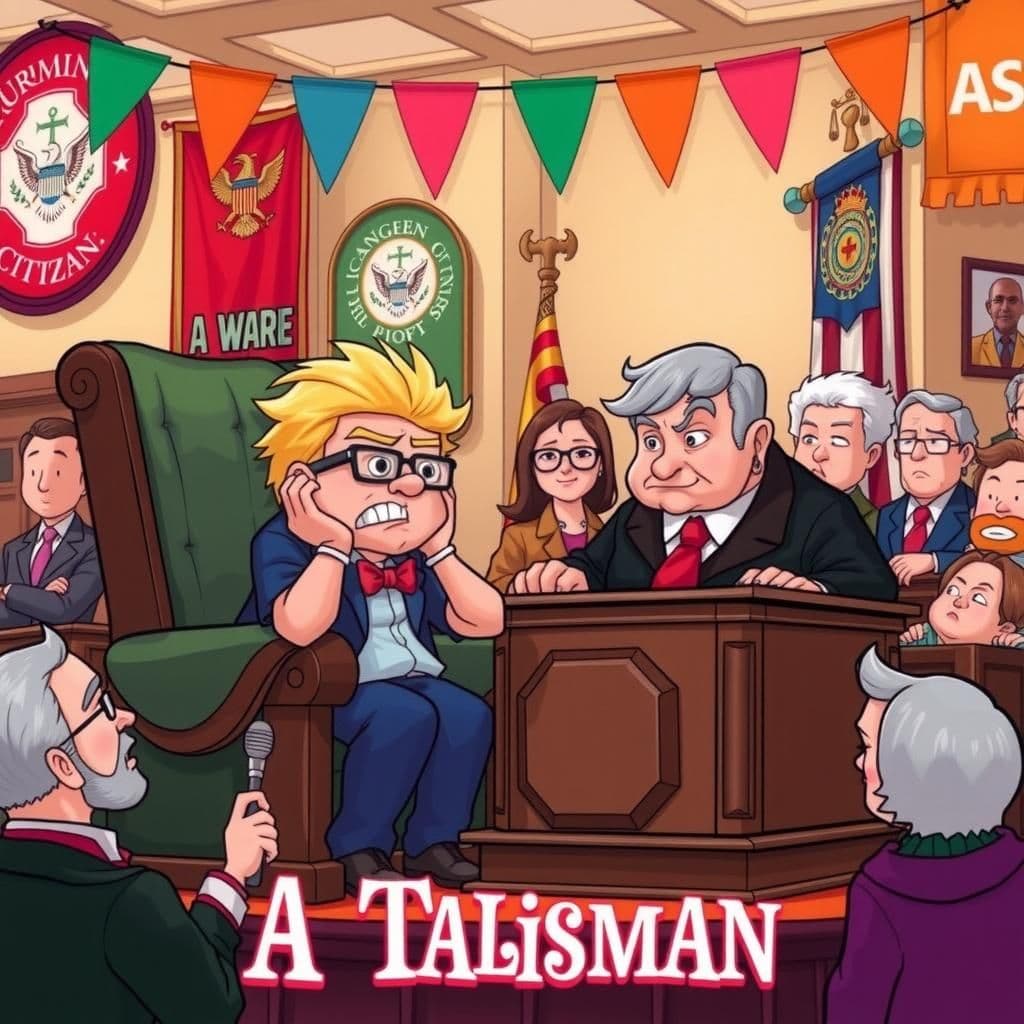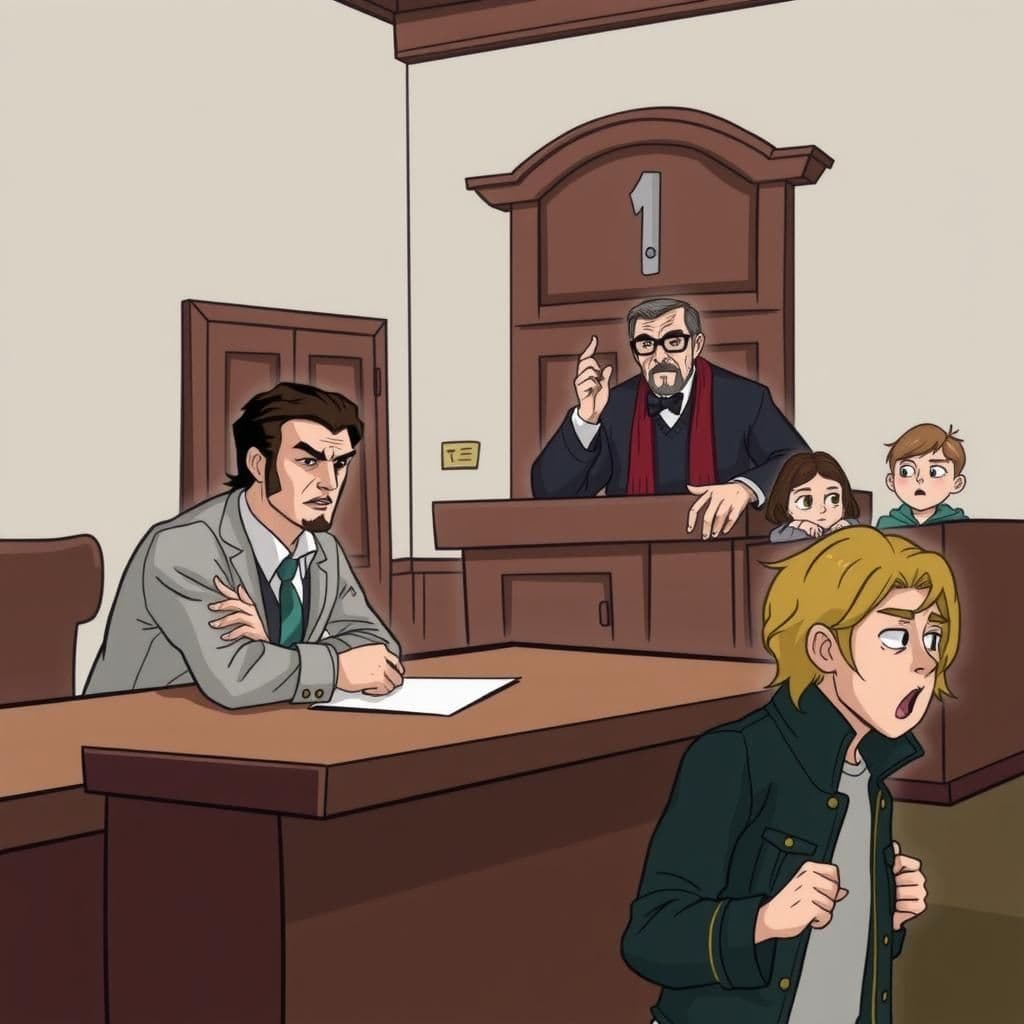A Talisman

Story Summary
In the short bedtime story "A Talisman," a Prominent Citizen tries to evade jury duty by submitting a physician's certificate claiming he suffers from softening of the brain. The Judge humorously dismisses his excuse, stating that he indeed possesses a brain, highlighting the importance of fulfilling civic responsibilities. This thought-provoking moral story serves as a valuable lesson for young readers about accountability and the futility of trying to avoid one's duties.
Click to reveal the moral of the story
The moral of the story is that true wisdom and discernment often reveal themselves through actions rather than mere appearances or claims.
Historical Context
This story plays on the themes of irony and satire that are prevalent in judicial and comedic literature. It echoes elements of Aesop's Fables, where moral lessons are conveyed through clever anecdotes, and has parallels in the works of writers like Ambrose Bierce, who often critiqued social norms and human folly. The humorous twist highlights the absurdity of certain societal roles and expectations, particularly in the context of civic duty and intelligence.
Our Editors Opinion
This story highlights the importance of personal responsibility and integrity in civic duties, reminding us that avoiding accountability under false pretenses is ultimately self-defeating. For example, in a workplace setting, an employee might try to dodge a challenging project by feigning illness, but this not only undermines their credibility but also erodes trust within their team, demonstrating that true character is revealed through how we confront our obligations.
You May Also Like

The Bull the Lioness and the Wild Boar Hunter
In this impactful moral story, a bull accidentally kills a lioness's cub, prompting her to mourn deeply. A wild boar hunter, observing her sorrow, points out that many men also grieve for their lost children due to her predatory nature. This short moral tale serves as a reminder of the cycle of loss and the consequences of one's actions, making it a poignant lesson for class 7 students.

The Tried Assassin
In "The Tried Assassin," a courtroom drama unfolds as an assassin stands trial in a New England court. His counsel argues for dismissal based on a previous acquittal in California, invoking the principle of "once in jeopardy." However, the judge denies the motion, stating that an assassin is not considered to be in jeopardy when tried in California, allowing the trial to proceed—a reflection of the complexities found in popular moral stories and animal stories with moral lessons.

The Justice and His Accuser
In "The Justice and His Accuser," a Supreme Court Justice in Patagascar faces allegations of securing his position through fraud, sparking a thought-provoking moral debate. While the Justice dismisses the significance of his appointment's legitimacy, the Accuser emphasizes that the Justice's misconduct on the Bench is far more critical, illustrating a classic moral lesson about the importance of integrity in leadership. This life-changing story encourages reflection on how power should be wielded responsibly, making it a compelling addition to inspirational short stories with moral lessons.
Other names for this story
"The Juror's Secret, The Judge's Dilemma, Brain Over Matter, Talisman of Truth, The Excused Juror, A Witness to Wit, Softening the Verdict, The Certificate Conundrum"
Did You Know?
This story cleverly critiques societal pretensions and the lengths to which individuals will go to evade civic duty, highlighting the irony that the judge perceives the citizen's excuse as a reflection of their intellect rather than a legitimate ailment.
Subscribe to Daily Stories
Get a new moral story in your inbox every day.